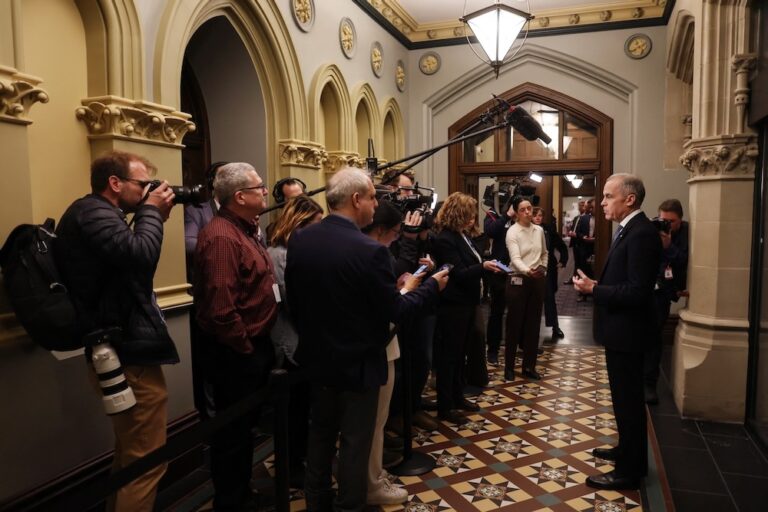(HRW/IFEX) – On 4 October 1998, Human Rights Watch welcomed the Canadian government’s recent announcement affirming the freedom of Canadians to develop, import and use whatever cryptography products they choose. Minister of Industry John Manley announced the policy last week as pressure to expand controls on encryption technologies continues to build. “This move recognises Canadian […]
(HRW/IFEX) – On 4 October 1998, Human Rights Watch welcomed the Canadian
government’s recent announcement affirming the freedom of Canadians to
develop, import and use whatever cryptography products they choose. Minister
of Industry John Manley announced the policy last week as pressure to expand
controls on encryption technologies continues to build. “This move
recognises Canadian citizens’ fundamental rights to privacy and freedom of
expression,” said Jagdish Parikh, who follows Internet freedom issues for
Human Rights Watch. “However, we are disappointed Canada failed to
acknowledge the equal — or perhaps greater — need of dissidents and human
rights organizations under repressive regimes to have access to the same
products.”
Canadian cryptography policy makes it clear that the government will not
implement mandatory key recovery requirements or licensing regimes for
certification authorities or trusted third parties. By contrast the United
States has adopted more restrictive encryption policies. In particular,
Washington has outlawed the export of the most popular software among human
rights activists, Pretty Good Privacy (PGP). The 1996 Wassenaar
Arrangement, an international agreement signed by 30 countries to govern the
proliferation of military technology, explicitly exempts crypto-software
such as PGP that is widely available in the public domain.
Increasingly, political and grassroots groups use encryption technologies to
share information and organise resistance. In recent remarks at a forum for
non-governmental organizations in Montreal, Canada’s Minister of Foreign
Affairs, Lloyd Axworthy, pointed out that “The Internet has the potential to
shelter and nourish opposition groups who are seeking democratic change
under repressive regimes.” For his part, Parikh concluded that “Business and
intelligence considerations should not be allowed to trump global citizens’
basic right to communicate freely.”
Recommended Action
Send appeals to the Prime Minister and the Minister of Industry:
which limit global access and distribution of encryption technologies for
legitimate uses
the
International Covenant on Civil and Political Rights, to which most members
of the Wassenaar Arrangement are party
Appeals To
Prime Minister Jean Chrétien
House of Commons
Centre Block, Room 309 S
Ottawa, Ontario
K1A 0A6
Canada
Fax: +1 613 941 6900Hon. John Manley
C.D. Howe Building
East Tower, 11th floor
235 Queen Street
Ottawa, Ontario
K1A 0H5
Canada
Fax: +1 613 992 0302
Please copy appeals to the source if possible.


